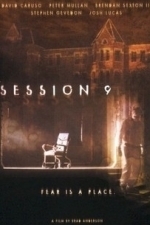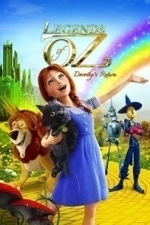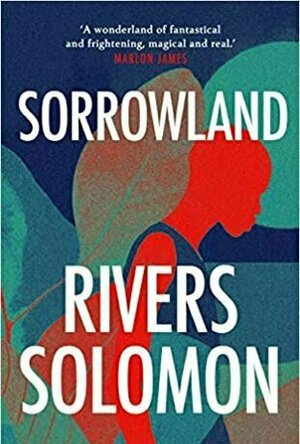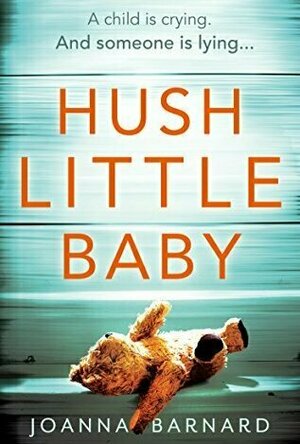Andy K (10823 KP) rated Vertigo (1958) in Movies
Oct 20, 2019
Once revived, Madeleine is no worse for wear, but does not remember the incident or the circumstances of her rescue at the hands of Scottie. They form a quick friendship that turns quickly into lust and a deepening feeling of obsession for Scottie. One day, they take a trip to Mission San Juan Bautista based on a nightmare vision described by Madeleine. She climbs the bell tower, but Scottie is unable to follow restrained by his vertigo and, unfortunately, has to just watch as she plunges to her death.
Afterwards, an investigation reveals Madeleine had been exhibiting irrational behavior which was the cause of her husband's concern in hiring Scottie, so her death is ruled a suicide. Scottie is distraught over the loss and takes consolation in his friend, Midge. On the mend, Scottie frequents locations Madeleine had visited previously hoping this would offer consolation to his grief. He meets a familiar, yet strange woman there.
Vertigo is usually not only considered Hitchcock's best film, but also on many critic lists as the greatest film of all time alongside Citizen Kane and Casablanca.
The movie does have a lot to admire including its complicated, intriguing screenplay which had smart discussions with its characters with lots of exposition given at various points challenging the audience to keep up. The film's situations are interesting and the plot keeps going at a vicious pace through the twists to the end.
I learned recently Hitchcock diva Vera Miles was initially cast for the role of Madeleine, but had to withdraw as she became pregnant before filming so Kim Novak replaced her. Due to several unforeseen delays, Miles had given birth and could've been available; however Hitchcock forged ahead with Novak anyways.
The harrowing initial scene where Scottie chases a random perpetrator across blackened rooftops only to stumble and discover his title affliction really sets the tone for the film both with the cinematography which is stunning and the blistering score at full pace.
Picking an absolute favorite Hitchcock movie has always been difficult for me. Vertigo would probably rank 3rd behind Psycho and The Birds, but still all masterpieces. I love the fact as in other Hitchcock classics, you think you know where the story is going, but he always keeps you guessing.
A magnificent performance by Jimmy Stewart as well. Well deserved of the praise he has gotten over the years for it. He is intense, charming and morose throughout the film which makes him electrifying to watch. His work with Hitchcock including Rope and Rear Window is among his best work.
A masterpiece.
JT (287 KP) rated Session 9 (2001) in Movies
Mar 10, 2020
In order to satisfy the millennials the majority of horror films today get their thrills from cheap jump scares. But real terror comes from the things that we can relate to. Things that go ‘bump‘ in the night or the sense that we are being watched. This for me, is real terror. Directed by Brad Anderson, Session 9 embodies all of that to perfection.
Despite being made in 2001 and with a low return at the box office, it has been able to creep out audiences years later.
An asbestos cleaning crew are set the task of clearing the abandoned Danvers State Hospital, a job that needs to be done within a week. Company owner Gordon (Peter Mullan) has put a lot of pressure on his team, consisting of Mike (Stephen Gevedon), Phil (David Caruso), Hank (Josh Lucas), and Jeff (Brendan Sexton III), to meet the deadline and collect a bonus. It’s pressure that starts to spill over right from the off.
The hospital is creepy as hell and even in the daylight the crew are plunged into darkness, which doesn’t sit well with Jeff who has a serious case of nyctophobia. They also have to deal with in-fighting amongst the group. On top of the tight deadline Gordon is struggling with the stress of raising a newborn child and arguments with his wife have not helped matters and slowly he becomes dissociated from the group. Meanwhile Mike stumbles across some tapes (nine of them) which are session interviews with a former patient called Mary Hobbes who has multiple personalities, that over the course of each session start to come out.
Phil (David Caruso) & Jeff (Brendan Sexton III) investigate the depths of the hospital
Like Stanley Kubrick’s The Shining – the location starts to take hold of each of the men, sending them spiraling into a world of personal madness. A number of subplots become interconnected the longer the film goes on and the pacing, while slow for some horror fans, is brilliantly orchestrated for those with patience. Despite being made in 2001 and with a low return at the box office, it has been able to creep out audiences years later.
What makes the film even more terrifying is the setting. The film was shot in the actual Danvers State Hospital so it needed little doing to it in terms of effects. The hospital was said to be the birth place of the prefrontal lobotomy (something which is referenced in the film), and part of me thinks that the fear on the actors faces as they walk the halls was in fact genuine terror. If that is the case then it only adds to the horror.
Session 9 will stay with you long after the credits. It doesn’t rely on heavy gore or CGI and builds tension with what you think you can see and at times – what you can’t.
Gareth von Kallenbach (980 KP) rated Legends of Oz: Dorothy's Return (2014) in Movies
Aug 6, 2019
The Legend of Oz: Dorothy’s Return is 3-D animated musical follow up that begins shortly after Dorothy (Lea Michele) returns home from the Land of Oz. The aftermath of the tornado has left her hometown in shambles. Dorothy fights to try to convince everyone that this is their home and it can all be repaired despite the government demanding everyone to vacate the town and seek refuge elsewhere. Back in Oz, the Jester (Martin Short) who happens to be the brother of the Wicked Witch of the West, has sought to rule the World of Oz. He and his band of flying monkeys (same ones from the original movie), begin their reign of terror turning the leaders from all corners of the land into marionettes. The beloved trio of Scarecrow (Dan Akroyd), the Tin Man (Kelsey Grammer) and the Cowardly Lion (James Belushi) believe the only person who can stop the Jester’s tirade is Dorothy. With the help of Scarecrow’s new invention, a machine that can bring Dorothy back over the rainbow and to the land of Oz, they summon for Dorothy. Instead of arriving to the Emerald City, Dorothy arrives in a far off land where she tries to locate the yellow brick road, knowing it will lead her to the Emerald City. On her journey we are introduced to new lands, new people and creatures, new songs, and a new adventure and obstacles that she must overcome before it’s too late.
As a standalone movie, this is a great kids film, one the whole family can enjoy. Lots of fun musical numbers, a mediocre storyline, engaging characters, and beautiful scenery. I would recommend watching this movie with zero expectations and do not attempt to compare it to the original movie, it doesn’t hold a torch!
Gareth von Kallenbach (980 KP) rated That's My Boy (2012) in Movies
Aug 7, 2019
Sandler stars as Donny, a down-on his luck former celebrity who gained notoriety after impregnating his teacher at 13. While the teacher (Eva Amurri Martino) went on to a 30-year prison sentence, Donny used his notoriety to become a pop culture sensation. Unfortunately for Donny fame was fleeting and he wasted the money he had accumulated along the way. We soon learn Donny faces a prison sentence unless he comes up with $45,000 to pay back taxes.
Desperate, he turns to his estranged son Todd (Andy Samberg), who has pretty much disowned his father and does not even go by is given birth name. Todd is about to marry a socialite named Jamie (Leighton Meester), and since he is a numbers genius with an extremely bright future with a partnership pending, the arrival of his crude, drunken father, is a disaster in the making. Passing himself off as long-lost friend, Donny attempts to reconnect with his son and naturally this happens over some very vulgar and awkward moments, not all of which are limited to bachelor party scenes.
Of course anybody who has seen any of Sandler’s films will know the formula that follows: crude situations followed by conflict, mixed with celebrity cameos and an ’80s soundtrack tossed in with a few laughs along the way towards a tidy ending. To say that there is a definite formula to his films would be an understatement and Sandler gives the impression that he’s making up many of the scenes as he goes along, all the while sporting a hybrid Boston/Little Nicky accent.
What ultimately sells the film is the energy and effort that the cast puts into their performances. While the plot can be charitably described as disjointed, there are several scenes that are LOL-inducing, especially those with James Caan as an angry priest and with Vanilla Ice and Todd Bridges lampooning their faded glory.
While the film is a bit cruder than most of Sandler’s usual fare it is, for the most part, good-natured and lighthearted. Obviously nobody is expected to take the film seriously. Samberg does a good job playing the restrained uptight Todd, and in the scenes where he lets loose, shows solid working chemistry with Sandler.
While it is not a great cinematic comedy it certainly has more than its fair share of laughs along the way, just as long as you’re willing to overlook the lackluster plot and uneven pacing of the film.

Little Nugget+ - Baby Journal
Photo & Video, Lifestyle and Stickers
App
***Featured by Brit+Co as a "BEST NEW APP"*** The premium version of Little Nugget® is a must-have...

Man of Steel and Honour: General Stanislaw Maczek: Soldier of Poland, Commander of the 1st Polish Armoured Division in North-West Europe 1944-45
Book
This is a biography of one of the most undervalued commanders of the Second World War, General...
Play in Early Childhood Education: Learning in Diverse Contexts
Marjory Ebbeck and Manjula Waniganayake
Book
The topic of play is fundamental to understanding how children grow and learn. Play in Early...
Melanie Caldicott (6 KP) rated Sorrowland in Books
Apr 29, 2021
Sorrowland is a genre-bending book which is like nothing I have ever read before and probably ever will again!
The story centres around Fern, an albino black teenage girl who gives birth to twins, Howling and Feral in the woods after escaping from a cult called Cainland. What follows is a mindboggling adventure surrounding her survival.
This is a coming of age story like no other – part sci-fi, part horror, part dystopian, part magical realism, this book defies genre. But amongst all the myriad of twists and turns this novel takes, what lies at the heart of it is a story about a girl who comes to understand her identity and rises above what has been spoken over her in her past.
During Fern’s journey of self-discovery the book examines themes such as racism, indoctrination, abuse and misogyny. There are many challenges in reading this book as we encounter a dystopian world that is disturbingly similar to our own exploring those who live on the fringe of society due to white domination. This not only includes Cainland, the cult set up by black people originally to challenge the white belief system, but also native American characters who quietly hold onto their truth in a far less bigoted and twisted way.
I love the big questions this book asks and the twisted paths it takes in asking them leading you into such unknown territories through the plot that you meet these issues head on in such different ways that you confront them anew and reexamine how you really feel about them and the impact that they have on our world.
Sorrowland is compelling and, although this would never be a genre I would normally read, I enjoyed the enigmatic nature of the evolving fantastical storyline and the constant surprises Rivers Solomon weaves into the plot. It is extremely well-written, with powerful characterisation, rich with poetic descriptions and intelligent themes.
However, the aims of the book seem to get a little muddled at times and I became confused about what Solomon wanted me to get out of the book. The story becomes so fast-paced and dense at times that this prevented me from taking a step back and truly immersing myself in the deeper themes of the novel.
This is a hard book to review. As I said, not something I would normally read, but the quality of the writing won me over. That said, I did not come away from the book feeling a sense of enjoyment, but instead, unsettled and disturbed by encountering a story of brutality with wild, savage characters and a frightening world where nothing is as it seems.
I would recommend this book – purely because you will be changed by it and this is one of the most powerful gifts of literature – but it is not a comfortable read and would not suit everyone.
Thanks to the publishers and NetGalley for the ARe-copy in exchange for this honest review.
BookInspector (124 KP) rated Hush Little Baby in Books
Sep 24, 2020
This is one of those books which left me confused, whether I liked it or not. I read the name of this book and the blurb, and was ready for some great mystery, maybe some horror; unfortunately, I did not get any of it… What I got, was incredibly strong and interesting characters.
The narrative of this book was told by Sally, Richard and Martha. They are a family; Richard married Sally after having an affair with her, and they took in Martha - Richard’s daughter from first marriage. After night out, Sally is woken up by her husband and whimpering ten month old Oliver, who’s hand has been broken. And that’s where this family’s drama begins. Oliver is taken away by social services and this family has to prove that they didn’t (or did?) break his arm. As the pages are turned, the book unfolds some unexpected discoveries, which changes the events in this book.
I think that the base of this book, which kept me going, was the characters. Their thoughts, which were expressed in this book, are so intriguing and too realistic. I loved the way Sally was telling her story as mistress, and how she seduced Richard. I really enjoyed Richard’s perspective in this book. He is very straight forward man, and I enjoyed reading his amusing thoughts in this book. Martha is a teenage spirit in this novel, sharing her story as a child, who is trying to adjust in her new family, and what difficulties she is facing. Even though, Oliver shows up very rarely in this book, the whole story mainly spins around Oliver and all the motherly/ fatherly love for him. Sally and Richard describe how their lives were going on before Oliver was born, and what happened to their relationship after the birth.
I wasn’t very impressed with narrative of this book, I think it kind of plodded along with few twists, and the main reason I kept reading was, the wish to find out who actually broke Oliver’s arm. Joanna Barnard discussed some serious topics in this novel, such as: what parents have to go through, when they are accused of child abuse; reasons for eating disorders and self harm; relationship problems.
The writing style of this book was very addictive, the pages just turn themselves, and I finished this book quite quickly. I think that was influenced by short chapters, easy language, and very absorbing characters. There is plenty of motherly love in this book, which made me roll my eyes, as I am not very big fan when it gets repeated over and over again. The ending of this book rounded up the story nicely, giving well deserved conclusion to this book. So to conclude, it is a family drama with very strong, diverse and realistic characters, filled with parental love and difficult relationships. If you are into these kinds of things, give this book a try and I hope you will enjoy.
Was given this book by publisher and NetGalley for honest review.

Astro Gold
Lifestyle
App
Astro Gold is the professional-level astrology iPhone and iPad app that you have been waiting for! ...






